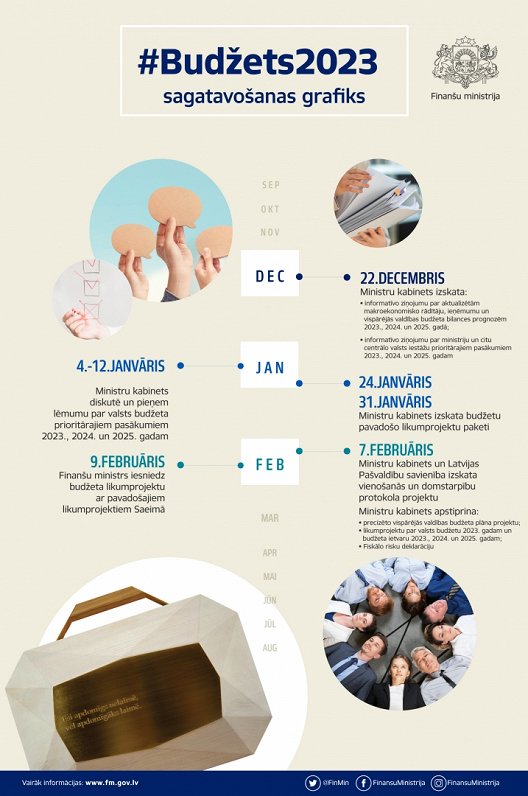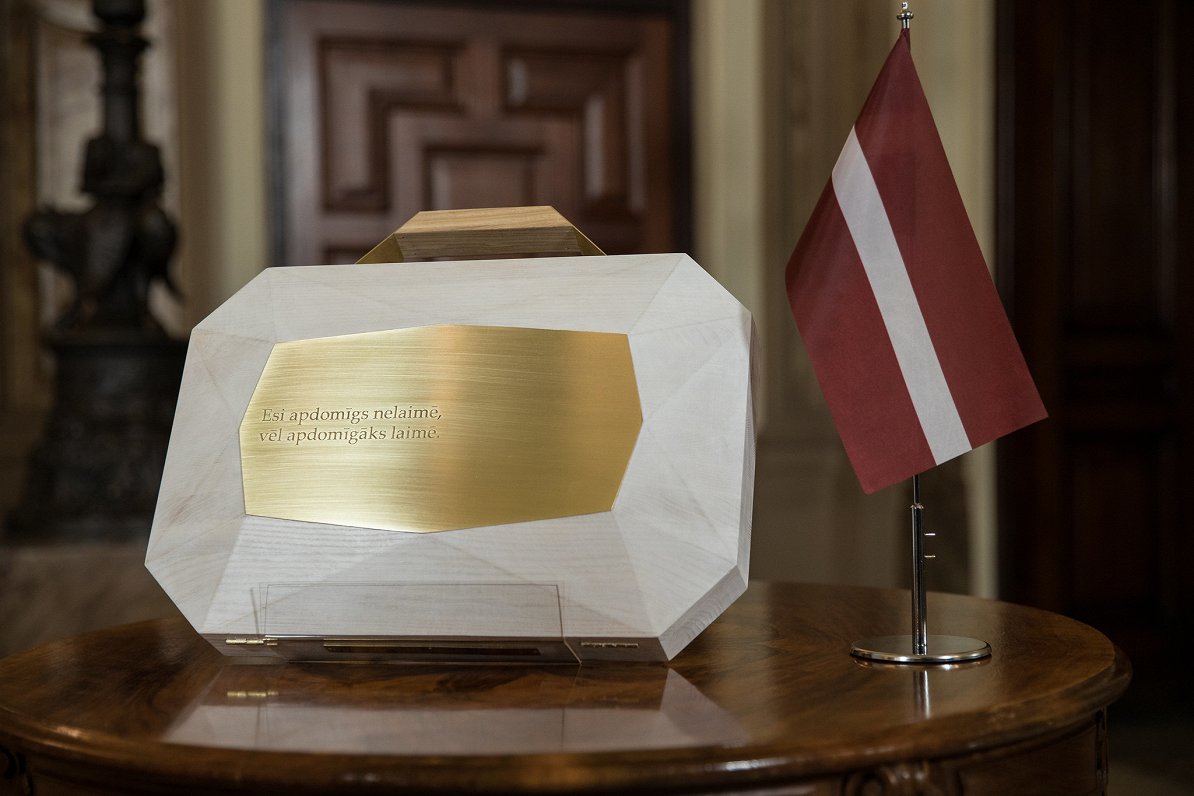As previously reported by LSM, the timing of parliamentary elections on October 1 and the protracted government formation negotiations that followed have meant that Latvia will start the new year with a temporary or rollover budget until detailed new spending plans are agreed.
According to a timeline agreed by the cabinet, on December 22 the cabinet willl meet in extraordinary session to examine a report on updated forecasts of macroeconomic indicators, revenues and general government budget balances in 2023, 2024 and 2025 and a similar report on the priority measures of ministries and other central state institutions.
Then, after Christmas and the New Year have passed, from January 4-12 there will be more "Discussions and decision-making on priority measures to be included in the state budget bill". That should lead to "Calculation of the total amount of the maximum permissible state budget expenditures" by ministries on January 13 and "Calculating the maximum allowable total amount of state budget expenditures and sending estimates of the maximum allowable total amount of state budget expenditures of the ministries" on January 17.
If everything remains on schedule, January 19 will bring "Preparation and submission of bills accompanying the budget (packages of budget bills) to the Cabinet of Ministers" and a few days later, on January 24, "Preparation and submission of the state budget requests of the ministries for 2023, 2024 and 2025 to the Ministry of Finance". On the same day there weill also be "Examination of draft laws accompanying the budget (budget bill packages) in the Cabinet of Ministers".
Two weeks after that, on February 7, the budget will reach the stage of "Consideration of the draft protocol of agreements and disagreements between the Cabinet of Ministers and the Union of Local Governments of Latvia," plus "Approval of the declaration of fiscal risks in the Cabinet of Ministers" and "Approval of the revised general government budget plan project for 2023 in the Cabinet of Ministers," and "Approval of the draft law "On the state budget for 2023 and the budget framework for 2023, 2024 and 2025" (with explanations) in the Cabinet of Ministers", at which point the general shape of the likely budget should be clear.
The next day, February 8, should see the budget plan submitted to the European Commission for comment and compliance, which should come quickly because the day after that – February 9 – it is anticipated that the comprehensive budget package will finally be submitted to Saeima for approval.
However, that is not the end of the road for the 2023 budget. Saeima must still scrutinize the plan and deputies will offer up their own proposed amendments, which can run into the hundreds. This can be a lengthy process in its own right. The budget for 2022 was submitted to Saeima on October 14, 2021 and finally passed on November 23. The year before that, even the debate on the 2021 budget took more than a week, so it seems likely the budget will not be signed, sealed, delivered and approved until some time in March 2023.






























